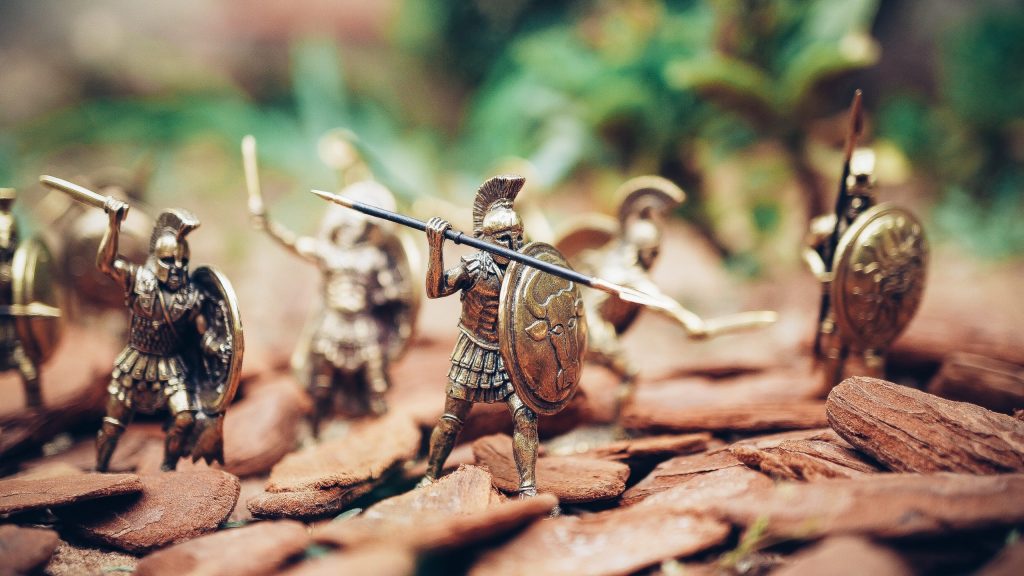Have you ever felt uncertain or indecisive when faced with a particular challenge?
Maybe you don’t know how to respond to an intimidating proposition from a boss or authority figure. Or you’re unsure about how to take the first step to begin a large project.
Take some inspiration from ancient Sparta.
Do not let one’s tongue outrun one’s sense.
-Chilon of Sparta
According to Plutarch, one of the first historians to document the philosophy in the ancient Greek city-state, Spartans were men of few words… but also masters of concise quips that got straight to the heart of the matter.
Philip II of Macedon, the father of Alexander the Great, conquered much of Greece during his reign. In his later years, he turned his attention to Laconia, the region that contained Sparta. He sent Spartan politicians a letter asking whether he should come as friend or foe.
In response, they sent him a single word. “Neither.”
Later, Philip upped his inquiry to a threat. “If I invade Laconia, I shall turn you out,” he said, according to Plutarch’s De garrulitate.
Again, the Spartan leaders sent a one-word reply. “If.”
The Spartans were so renowned for their blunt, concise replies that today the style is known as a laconic phrasing, named after the region in Greece.
A short, cutting laconic phrase isn’t only intended to rile the spirits of an opponent. They can also be used as a form of motivation, eliminating doubt or uncertainty and getting straight to the heart of the matter.
In the graphic novel and feature film 300, written by Frank Miller and largely based on the writings of Plutarch, the Spartan King Leonidas is a master at wielding laconic phrases to motivate his army of 300 spartans against 300,000 Persian invaders.
NEW! Put the principles from this article into practice with the free courage-boosting MaArtial app on the App Store for iOs and Play Store for Android.
“Spartans,” Leonidas exclaims. “Ready your breakfast and eat hearty for tonight we dine in Hell!”
“Good,” Leonidas says when informed that the Persians will shoot so many arrows that they will blot out the sun. “We will fight in the shade.”
Examples of laconic Spartan phrases often refer to official communication sent between warring states, but it can also be applied in the modern day, and even within our own inner dialogue.
The next time you face doubt or uncertainty about how to proceed, remember the Spartans and see if you can get straight to the heart of the matter. Remind yourself why you’re doing something, and how it must be done.
Be decisive when you confront your next challenge, and approach it with the courage of the ancient Spartans.












